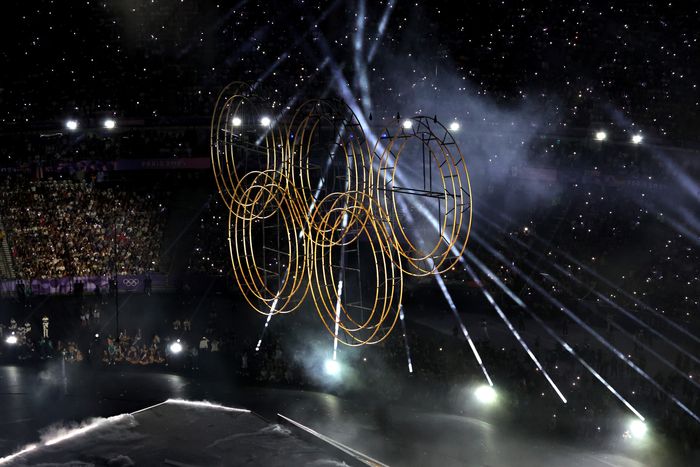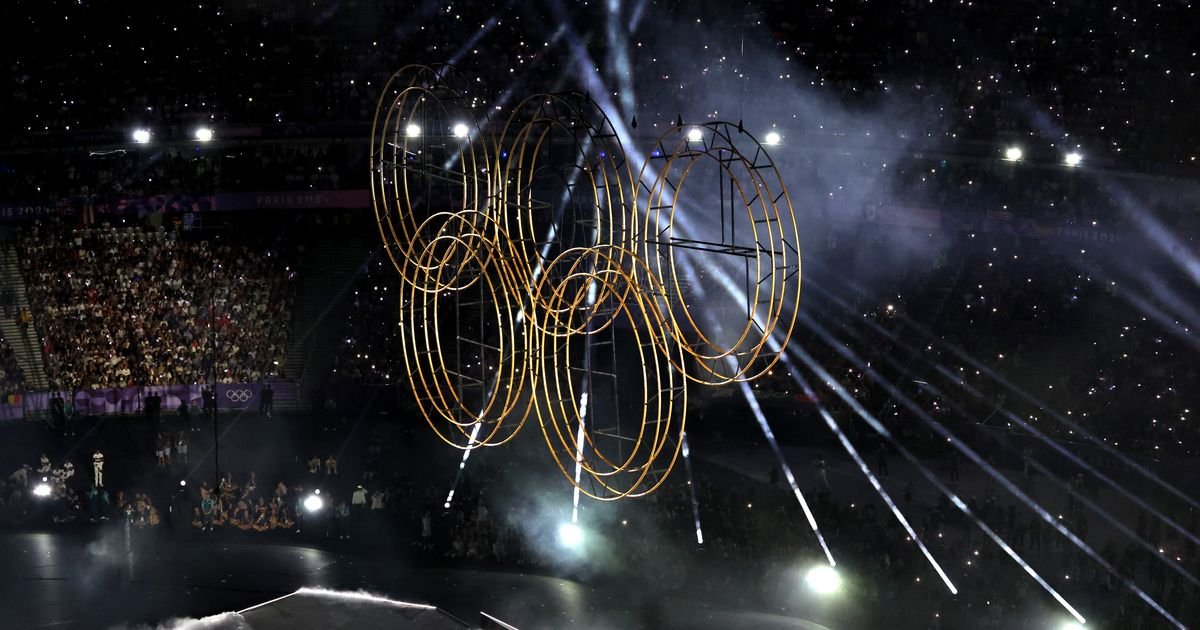
Photo: Dan Mullan/Getty/Getty Images
Before they fly out of Paris, the folks over at NBCUniversal — from NBC Sports to Peacock — might wanna swing by the Champagne region of France to stock up on its namesake export. According to Nielsen ratings and NBC’s internal data released Monday, the company’s coverage of the Paris Olympics was a smashing success, attracting an average total audience of 30.6 million viewers over the course of the 17-day event. That’s up a stunning 82 percent over the COVID-delayed Tokyo Games (16.9 million) and ahead of the similar metric for the recent Olympics in Rio (27.5 million) and London (30.3 million in final data, per NBC).
It’s a stunning win for NBCU owner Comcast, which like other legacy media companies has been struggling through the transition from linear TV (broadcast and cable) to streaming. Not only did NBCU’s linear properties turn in exceptional performances during the Games — with a halo effect for divisions such as NBC News and Telemundo and USA Network — but subscription streamer Peacock dramatically improved upon its 2021 and 2022 performance covering the Olympics.
While there were certainly hiccups, the overall reaction to the streamer’s presentation of the Paris Games was positive, while the numbers were eye-poppingly good: NBCU says 23.5 billion minutes of coverage was streamed — most of it on Peacock. That is 40 percent more than the audience for the last two Olympiads combined. On any given day, 4.1 million viewers streamed NBC Sports coverage of the Games, either via Peacock or the NBC Sports app. Some of that reflects the fact that NBCU offered more coverage this year and that Peacock’s subscriber base was bigger. But it’s clear audiences were invested in the Games much more than during Tokyo.
To be sure, comparing this year’s Games to past ceremonies is not as simple as it once was, for a host of reasons. More viewership has shifted to streaming while, for the first time, NBC broadcast events which took place in the evening Paris time live twice each day: first, live during daytime hours here in the States and then again, in a repackaged form, in primetime. That’s why, if you were to look only at Nielsen same-day linear primetime ratings, the gains vs. Tokyo would look less impressive, while viewership would appear to be down vs. many nights during Rio or London. But you’d also be comparing … scones to baguettes.
Remember: NBC previously made TV audiences wait until primetime to watch big events rather than giving them a choice, while streaming options in the past were either less robust or nonexistent. So all the measurable viewership took place in one specific timeframe. That’s not the case in 2024, which is why NBC now calculates average viewership by combining the audience for the network’s live, daytime coverage of primetime competition in Paris; viewership of the highly-produced version of those same events broadcast at night, U.S. time; people who also streamed live via Peacock; and the primetime audience for events NBCU covers via its cable networks. NBC calls this combined ratings metric a “total audience delivery” rating, and by that yardstick, viewership is, as noted, up dramatically from Tokyo and exceeds other Olympiads as well.
While it’s tempting to think NBC is pulling some sort of ratings fast one, in this case, the network is very much justified going with something other than pure Nielsen primetime numbers. Fact is, audiences in 2024 simply don’t watch TV the way they did even five years ago: Streaming (especially Peacock) is a lot more dominant, and whether someone watched Simon Biles work her magic at 1 p.m. in the afternoon or at 9 p.m. later that same night doesn’t matter much to advertisers (who, after all, are the reason ratings exist.)
Is there a chance the 2012 London Games would’ve had even bigger overall numbers had NBC shown the primetime events twice every day and had a streaming option? Of course. That’s why historical comparisons are a tad inexact. But what is clear is that a ton of people watched this summer’s Olympics, and those numbers were on par with how many people tuned in for past, super successful Games. NBC earned its gold.







